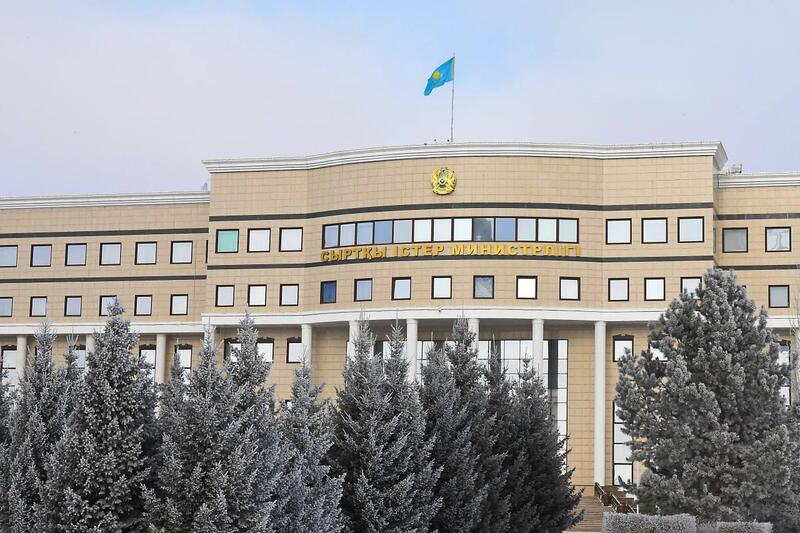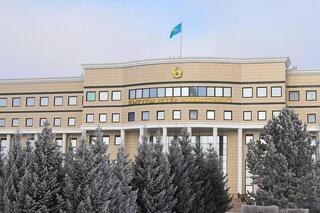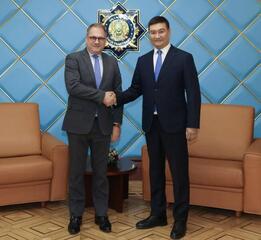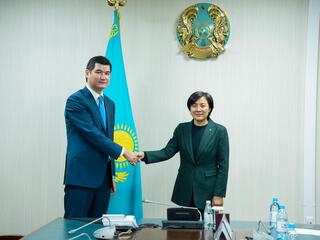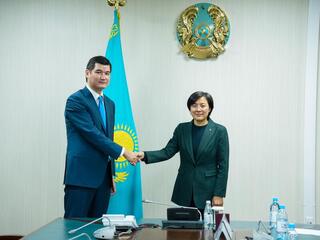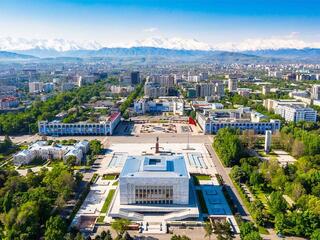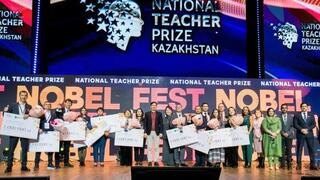Kazakhstan Marks a Year of Substantial Progress Across Key Sectors
Astana, January 3, 2024 – Kazakhstan has emerged as a resilient and dynamic nation, demonstrating notable progress in various sectors, as noted by PM Alikhan Smailov in his end-of-year interview with 24KZ TV channel and in materials provided by the government. The government’s commitment to comprehensive development is evident across economic growth, agriculture, healthcare, transportation, manufacturing, social welfare, and education.
Kazakhstan has shown strong resilience in adapting to global challenges, maintaining economic stability. The government’s plan targets doubling the national economy to $450 billion, aiming for at least 6% annual growth, with manufacturing playing a pivotal role. Across all sectors, 210 new investment projects have been launched, creating 19,500 jobs. The country’s GDP per capita rose from $11,500 to $13,300, and year-on-year inflation in November decreased to 10.3%. Foreign investment saw an increase, with $13.3 billion attracted in the first half of the year alone. Significant strides were made in demonopolization and public welfare funding, with assets transferred to state ownership and funds allocated to public welfare and educational infrastructure. Furthermore, as noted by Prime Minister Alikhan Smailov, “Our goal is to increase the share of SMEs to 40% of GDP in the medium term.” (as announced in December 2023, their share reached 36,5% this year).
Simultaneously, the agricultural sector, a key part of Kazakhstan’s economy, has seen extensive state support leading to increased production and diversification. Strategic development goals focus on transitioning to value-added manufacturing, aiming for a 70% increase in processed agricultural products within three years. Over 200 new investment projects, the formation of 400 cooperatives, and comprehensive subsidy system reforms highlight the sector’s growth and future preparedness.
In healthcare, 2023 marked significant developments, including the “Modernization of Rural Healthcare” project and the completion of the National Scientific Oncology Center in Astana. There’s been a marked reduction in mortality rates, including a 5.7% decrease in overall mortality. Investments in medical equipment have been substantial, with 514 pieces of equipment purchased for 58.8 billion tenge. The expansion of screening programs and telemedicine services, alongside comprehensive plans against cancer, reflect the government’s focus on improving healthcare services.
The nation’s transport and logistics sector has been prioritized, leveraging geographical advantages for economic benefit. There has been a 3.9% increase in freight transportation, with transit cargos growing by 21%, and a 1.6-fold increase in transport sector investments amounting to 1.8 trillion tenge. Developments in maritime and inland water transport, expansion in air transport and airport infrastructure, and the introduction of eco-friendly public transport initiatives demonstrate the sector’s dynamic growth. Prime Minister Smailov noted that Kazakhstan hosts 13 international corridors, including 5 railway and 8 road corridors. This year, the total volume of transit transportation grew by 21%, reaching 30 million tons. He added: “Recently, we began building a new railway line towards China, the ‘Bakhty – Ayagoz’ line. It will nearly double the transit capacity between Kazakhstan and China, increasing it from 28 to 48 million tons of cargo. This expansion will alleviate the load on southern checkpoints and attract additional transit volumes.”
Kazakhstan’s strategic shift towards economic reforms has revitalized its manufacturing industry. The launch of 126 new projects, diversification through key industrial developments, growth in the automotive sector, and technological advancements have significantly contributed to job creation and economic diversification. The revitalization of the Qarmet Plant and the focus on small and medium-sized projects catering to the domestic market are notable highlights. As noted by Prime Minister Alikhan Smailov, “The manufacturing industry has caught up with the mining industry in terms of volume and continues to grow.”
The government’s commitment to enhancing the social framework is evident in its focus on job creation, entrepreneurship, and increasing welfare benefits. Over 908,500 people gained employment, and 9,100 grants were provided for business startups. Youth support programs offering concessional lending resulted in the approval of 5,400 business projects. Initiatives like the ‘JOLTAP’ social project, state-subsidized employment, the National Fund for Children initiative, salary increases for civil servants, and proactive social support systems have positively impacted the nation’s social welfare. Commenting on social support, Prime Minister Alikhan Smailov said: “This year, pensions and all social payments have increased. This covered 4.5 million people, with 4.6 trillion tenge allocated for this purpose. Since the beginning of the year, social services have been proactively provided to almost 1 million people, and we will continue this work.”
Furthermore, education remains a central pillar of Kazakhstan’s development agenda. The National Project “Comfortable School” has made significant strides in infrastructure investment and modernization, nutrition and safety in schools, and professional development for educators. Collaborations with international universities, innovative educational programs, and the expansion of educational facilities reflect the government’s commitment to enhancing the educational landscape. In the 2023 QS World University Rankings, 21 Kazakh universities were featured.
This year-end overview demonstrates Kazakhstan’s commitment to national development, highlighting strategic advancements across key sectors. The nation continues to stride towards a future marked by sustainable growth, innovation, and an enhanced quality of life for its citizens.
Источник:
Подписывайтесь на наш Telegram канал, и будте в курсе всех важных событий, вот ссылка -
